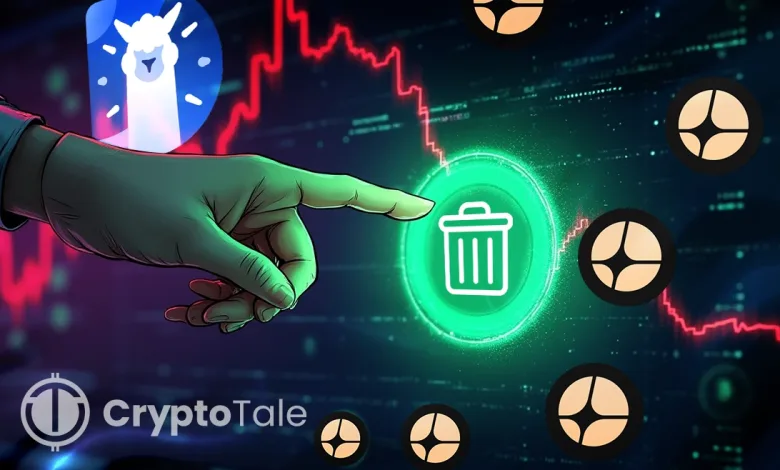DefiLlama Delists Aster for Unusual Trading Volumes

- Aster delisted by DefiLlama over suspected wash trading; highlights DeFi audit.
- Aster’s volume mirrored Binance, raising concerns of potential market manipulation.
- DeFi platforms face growing pressure to report trading volumes accurately and transparently.
DefiLlama’s removal of Aster due to suspected wash trading raised concerns over the validity of trading volume data in decentralized exchanges. The unusual correlation between the reported volumes of Aster and Binance has raised concerns about possible manipulation. Credible data auditing has become a critical aspect for exchanges that seek to build user trust and compete effectively in an increasingly regulated and transparent market.
Aster Delisting Highlights Volume Manipulation Risks
The recent delisting of Aster’s perpetual futures trading volume data by DefiLlama has shocked the decentralized finance (DeFi) community, revealing the issue of wash trading and the legitimacy of on-chain volumes in decentralized exchanges (DEXs). According to 0xngmi, Aster’s perpetual trading volume exhibited a nearly perfect correlation with Binance’s perpetual futures volume, with a ratio close to 1.0.
DefiLlama delisted Aster after it failed to provide perpetual volumes trading data, aiming to preserve the integrity of its data and maintain user confidence. This action has significant effects on Aster’s reputation and market confidence.
Lack of Transparency Hits Aster’s Market Trust
The native token of Aster fell by approximately 10% in value following the announcement, falling to approximately $1.8 after trading around $2.0. Its mid-September launch had seen the token peak around $2.4. The price decline indicates increased selling pressure and market skepticism triggered by the fear of wash trading.
The correlation between Aster’s volumes and Binance’s is especially concerning since Binance is one of the largest centralized exchanges, while Aster operates as a decentralized perpetual contracts trading platform. The volume of trading pairs such as XRPUSDT and ETHUSDT showed nearly identical volume patterns on both exchanges, which is unlikely under normal market conditions. This points toward possible volume inflation or wash trading aimed at creating an illusion of liquidity and market interest that could be misleading to market participants.
This scenario underscores broader issues faced by the DeFi sector as it grows and seeks credibility in the face of greater market and regulatory attention. The authentication of on-chain volume is critical for DEXs to gain trust and compete in a world where data integrity is non-negotiable.
Related: Aster’s Explosive Debut: 1,650% Surge and $1B TVL in First 24 Hours
Rising Demand for DeFi Audits and Security
Wash or synthetic trading distortions are not only deceptive to traders but also erode faith in decentralized platforms seeking to deliver transparent and open financial systems. As decentralization gains emphasis, the demand for reliable data auditing and transparency has never been greater.
DeFi analytics providers and data aggregators such as DefiLlama are at the forefront of this search, establishing data quality standards and warnings about suspicious activity to avoid misinformed investment choices. One such move to maintain data credibility is their proactive strategy of delisting problematic volume data.
Furthermore, the wider DeFi infrastructure is experiencing a growing demand for strict audit processes and regular vigilance. The ongoing audit of decentralized protocols and smart contract audits help ensure that systems remain secure and trustworthy, particularly when new protocols receive substantial capital and user attention.




